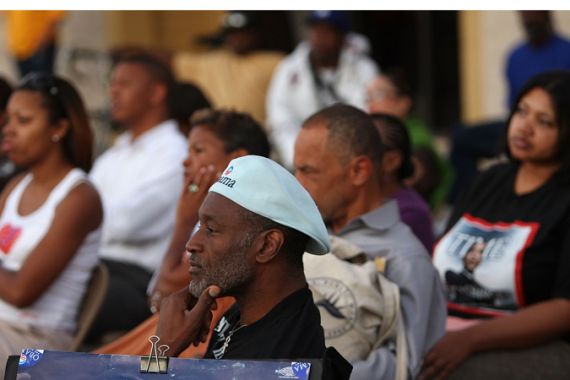
Minorities: A growing force in US politics
Minorities are changing the US electoral calculus, but will that benefit Democrats or Republicans?
Both Republicans and Democrats are mapping out a path to victory for the 2012 election, with each going on the offensive to win over what is known as the minority vote.
|
“They are still going to have to work for it. They are going to have to show that they actually represent the values, the needs and concerns of those communities … it’s all about the agenda. The African- American community also learned the hard way that just because someone may look like you doesn’t mean they support you.“ – Hilary Shelton, the vice-president for Advocacy and Policy at the NAACP |
Minorities are a growing force in US politics – and one that is changing the electoral calculus.
Both Barack Obama, the US president, and the eventual Republican presidential nominee will be pursuing their support in a bid to win the November presidential election.
The minority vote consists primarily of African-Americans and Latinos. But it also includes Asian Americans, Muslim Americans, Native Americans, and many other groups.
The Latino vote is the biggest of all. The number of Hispanics living in the US has been steadily increasing. According to the last census, there are now more than 50 million Latinos in the US.
And the black vote is also important – with one-eighth of the US population falling into this category. Just as with the Latino vote, Candidate Obama carried a large proportion of the black vote on his journey to the White House in 2008.
|
“Both he [President Obama] and the Republicans have the challenge to defeat the real candidate in this, which is nobody because nobody is speaking to our issues, nobody is telling the truth, nobody is really supporting Latinos.“ – Roberto Lovato from presente.org, an online Latino advocacy organisation |
But President Obama cannot take the minority vote for granted in 2012 – it is considered to be very much up for grabs.
Firstly, many Latinos are disappointed in Obama for failing to reform the immigration system. There are now more deportations than there were under the previous administration.
And the poor economy and high unemployment rate are affecting blacks and Latinos in disproportionate numbers, while the growing wealth inequality between rich and poor has been exacerbated by the number of black and Latino families who have lost their homes through foreclosures.
On this episode of Inside Story US 2012 we ask: How will Democrats and Republicans attract the minority vote?
To discuss this we are joined by: Hilary Shelton, the vice-president for advocacy and policy from the National Association for the Advancement of Colored People (NAACP); Roberto Lovato from presente.org, an online Latino advocacy organisation; and Rich Counts, the former chairman of the Washington DC Young Republicans.
Republican candidate Newt Gingrich has said on the campaign trail that poor children lack a strong work ethic and has proposed having them work as janitors in their schools.
Below is what he said:
“You could take one janitor and hire 30-some kids to work in the school for the price of one janitor, and those 30 kids would be a lot less likely to drop out. They would actually have money in their pocket. They’d learn to show up for work. They could do light janitorial duty. They could work in the cafeteria. They could work in the front office. They could work in the library. They’d be getting money, which is a good thing if you’re poor. Only the elites despise earning money.”
|
Minority vote facts Hispanic voters – Source: Pew Hispanic Center
Black American voters
|